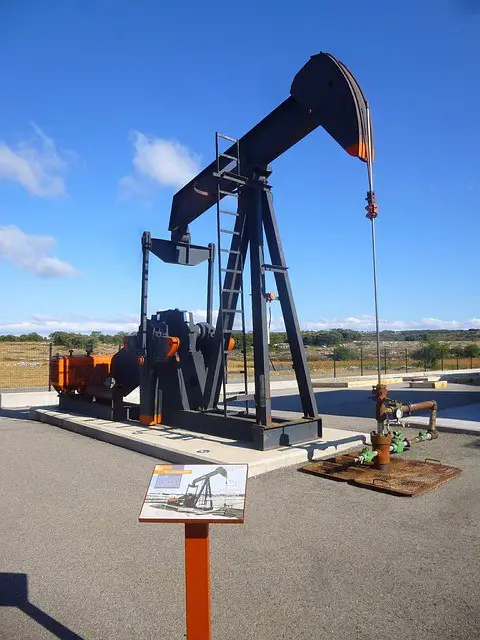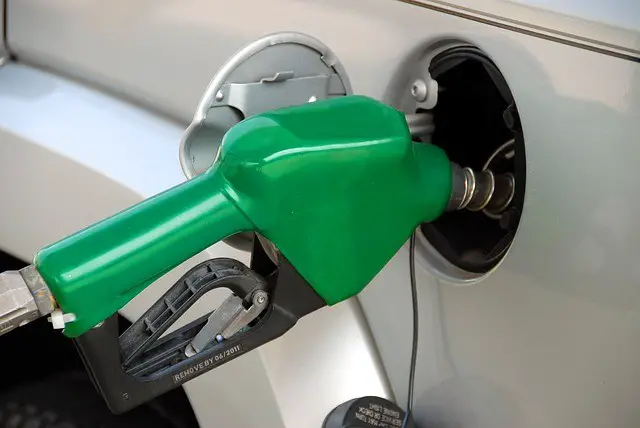Fossil fuels are one of the most important sources of energy in today’s world. It is providing for almost 80% of the world’s energy needs. This huge dependency of the world on fossil fuels is very important to study because fossil fuels have a finite supply and are the unsustainable resources of energy. With the growing demand for energy over time, the supplies of fossil fuels will eventually run out. We have gathered a complete collection of Fossil Fuels Facts For Kids that will provide you with all the information about fossil fuels you need to know. You are going to learn their definition, meaning, discovery, location, formation, usage, advantage, disadvantages, efficiency, cost, products, and many other interesting fossil fuels facts.
Fossil Fuels Facts For Kids
1. What Are Fossil Fuels – Fossil Fuels Definition
- The term fossil fuel is used for the easily combustible underground deposits of organic materials that are formed from the decayed animals and plants in the geological past.
- Fossil fuels are natural fuels and include petroleum or crude oil, natural gas, and coal.

2. What Is Meant By Fossil Fuel – Fossil Fuels Meaning
- Fossil fuels mean natural fuels like coal, natural gas, and petroleum that are formed from the remains of buried organisms (animals and plants) through a natural process of anaerobic decomposition and by exposure to excessive heat and pressure for millions of years.
3. What Is Fossil Fuel Energy – What Type Of Energy Is Fossil Fuels
- The energy of fossil fuels is chemical energy.
- Fossil fuels provide energy through a chemical reaction known as combustion.
- The energy is stored in every carbon-carbon and carbon-hydrogen bond, which is released when these bonds are broken.
- When hydrocarbons (compounds of carbons and hydrogens) in fossil fuels burn in the presence of oxygen, it produces carbon dioxide, water, and heat or energy.
- The combustion of fossil fuels is a highly exothermic (heat releasing) reaction and produces a huge amount of energy.
4. Who Discovered Fossil Fuels
- It is unknown who discovered fossil fuels.
- However, it is claimed that about 4,000 years ago, a person in northern China discovered for the first time that a black rock (coal) could burn.
- Since 1,000 BC, coal has been utilized as a fuel.
- However, coal replaced biomass as a main source of fuel during the period of the Industrial Revolution (from about 1760 to 1840).
- About 6,000 years ago, the ancient Egyptians and people living near the Euphrates river collected a black viscous liquid (crude oil) that was oozing from the ground.
- That liquid was used as a medicine for wounds and for lighting the lamps.
- At the period between 6,000 to 2,000 years ago, the ancient Persians introduced natural gas due to the ignition of gas seeped by the lightning strikes.
5. Where Are Fossil Fuels Located
- Fossil fuels are not evenly located across the planet earth.
- The world’s largest deposits of coal are located in the United States, Russia, and China.
- Countries like Australia, South Africa, and India also have fairly large coal deposits.
- The largest reserves of oil and natural gas in the world are mostly located in the Middle Eastern countries and also in Russia, Canada, Venezuela, and United States, while to a less extent in some other countries of the world.

6. Where Do Fossil Fuels Come From
- Scientists believe that fossil fuels come from the dead remains of organisms.
7. What Are Fossil Fuels Made From
- Fossil fuels are made from the dead matter of plants and animals for hundreds of millions of years.
- Crude oil or petroleum is made up of different kinds of hydrocarbon molecules of lower to higher molecular weights.
- Natural gas has methane as a basic component along with other lower weight (short-chain) hydrocarbon molecules.
- Hydrocarbons are organic compounds made up of hydrogens and carbons.
- Coal is a combination of carbon, hydrogen, oxygen, sulfur, and nitrogen and exists in a variety of forms.
8. How Do Fossil Fuels Form
- Fossil fuels were formed from the anaerobic decomposition of ancient organisms (plants and animals).
- The period in which the fossil fuels were formed is known as the “Carboniferous period” (about 360 to 286 million years ago) that was part of the Paleozoic Era (545 to 251.9 million years ago).
- At that period, there were marshes on the land and large leafy plants and huge trees were in abundance while the seas and oceans were filled with algae.
- Upon their death, all the organisms (plants and animals) sank to the bottom of oceans and marshes.
- Their dead matter formed a spongy material known as “peat”.
- Throughout millions of years, layers of clay, sand, and other minerals covered peat and made a rock known as the sedimentary rock, beneath which peat started to decompose.
- From the peat, different types of fossil fuels formed based on the combination of organic materials, the amount of temperature and pressure, and the time of decomposition.
- Long leafy plants and huge trees converted to coal, which became hardened by the excessive pressure and heat.
- Small organisms like phytoplankton and zooplankton transformed into crude oil.
- Natural gas was also formed from the phytoplankton and zooplankton, however, it underwent more heat and pressure that caused its further decomposition and conversion into a gaseous form.
9. How Long Do Fossil Fuels Take To Form
- The formation of fossil fuels takes hundreds of millions of years.
- Coal in Britain started to form about 300 million years ago.
- The oil deposits in the North Sea are nearly 150 million years old.
- The estimated time for most of the fossil fuels that started to form is around 370 million years ago.
10. What Are Fossil Fuels Used For – Uses Of Fossil Fuels List
- Human beings are greatly dependent on fossil fuels and they became indispensable things for their lives.
- The United States obtained 81% of its entire energy from fossil fuels, like coal, oil, and natural gas.
- Some of the major uses of fossil fuel are:
Electricity Production:
- Fossil fuels, especially coal, are significantly used for the generation of electricity.
- Throughout the world, coal is used as a fuel in many thermal power plants and very few utilize other fuels like oil or natural gas.
- In the United States, about half of the electricity is generated by coal.
Transportation:
- From small cars to ships and airplanes, fossil fuels are utilized to power the engine in all the major means of transportation.
- Gasoline and CNG (Compress Natural Gas) power cars and other small vehicles, while trains, trucks, and other heavy vehicles are powered by diesel.
- In ships three types of petroleum-based fuels are utilized, which are Low Sulphur Fuel Oil (LSFO), Heavy Fuel Oil (HFO), and diesel oil.
- In airplanes, petroleum-based unleaded kerosene (Jet A-1) or naphtha-kerosene blend (Jet B) is utilized as fuel.
Homes:
- Propane gas (derived from petroleum) is utilized in kitchens for cooking.
- It is also utilized for heating homes in winter.

11. How Are Fossil Fuels Used
- Fossil fuels are used to burn directly in the air to produce heat energy like in homes (kitchens).
- For the production of electricity, fossil fuels are burned to produce steam from water, and the steam then drives generators and provides electricity.
- In jet airplanes, gas turbines are utilized, which fossil fuels burned to produce heat, and the heat then increases the temperature and pressure of the combustion products to supply motor power.
12. Why Do We Use Fossil Fuels
- Why do we use fossil fuels rather than other environmentally friendly sources of energy?
- The possible answer to this question is that we are more familiar with fossil fuels as we utilized them for decades.
- Fossil fuels are also easily accessible and cost less as compared to other sources.
- There is also a lack of knowledge in the world about the harmful effects of fossil fuels on the environment.
13. How Is Energy Produced From Fossil Fuels – How Do Fossil Fuels Work
- In fossil fuels, every bond within hydrocarbon molecules stores a great amount of energy, which is released upon breaking.
- To produce power or electricity, fossil fuels are burned to heat water and produce steam.
- The steam then lay pressure on the turbine and forced the blades within it to rotate.
- The turbine is connected with a generator that has a rotor, which is a moving or rotating component.
- The rotor is attached with large electron magnets situated within a rectangular coil of copper wires.
- As the rotor within the generator spins, the spinning magnets attached to the rotor cause the electrons within the copper coil to flow.
- The flow of electrons or electric charge is known as electricity.
- The electricity produced in this way powers the grids of electricity.
14. Why Are Fossil Fuels Important – Importance Of Fossil Fuels
- In human life, fossil fuels are of great importance as it is one of the most extensively utilized energy source.
- Fossil fuels are used as fuel in vehicles, trains, ships, and airplanes for transportation, in powerhouses to generate electricity, and in homes for cooking and heating purposes.
- Fossil fuels, particularly petroleum, are used in the production of some medicines and other things we generally used in our daily lives like plastic, shoes, clothes, detergents, dishwashers, etc.
- Petroleum is widely used in the production of makeup and hygiene accessories like deodorants, lipsticks, mascara, vaseline, sunglasses, etc.
- Petroleum is also used in the production and shaping of electronic devices such as computers, refrigerators, etc.
- The residue left after the refining of petroleum is known as “tar” and is used in road construction.
- A by-product obtained during the production of coal gas and coke from coal is known as the “coal tar”.
- Coal tar is used in medicines for skin diseases as well as for the surfacing of roads and as a preservative for railway ties.
15. Burning Fossil Fuels Effects – Combustion Of Fossil Fuels Effects
- The burning of fossil fuels causes serious effects on the health of human beings and the environment.
- The externalities of fossil fuels include land degradation, air pollution, water pollution, and global warming.
Air Pollution:
- Due to the burning of fossil fuels, huge amounts of sulfur, mercury, and other tiny particulates produces and emits into the air.
- When natural gas burn, nitrogen oxides (NO?) produces and emits into the air and play a key role in smog formation.
- The air pollution due to fossil fuels causes serious health problems in the public, particularly respiratory problems, causes premature death of the children, and increases the economic burden on society.
Water Pollution:
- The mining of coal and the drilling of oil and natural gas seriously contaminate the underground and the lake or sea waters of the surrounding areas.
- The outflow of highly acidic water from a coal mine is called the acid mine drainage or acid rock drainage that also contains heavy metals like copper, lead, and arsenic.
- Such acidic water alters the PH of the neighboring streams and lakes to the same level as the vinegar.
Global Warming:
- The most dangerous effect of the burning of fossil fuels is its contribution to global warming.
- The burning of fossil fuels produces greenhouse gases, which trap heat and do not allow it to go back.
- Methane, the component of natural gas, emits from the transportation pipelines and the drilling wells.
- Methane is a much more potent greenhouse gas than CO₂ and approximately 34 times more effectively traps heat on the time scale of over 100 years, while 86 times more effective over the time scale of 20 years.
- Due to global warming, the sea level is rising by the melting of glaciers and ice of the poles, which is disturbing the balance of the natural processes.
Land Degradation:
- The mining and drilling of coal and oil also cause land degradation.
16. Efficiency Of Fossil Fuels
- Efficiency is the measurement of the conservation of energy or work in a process.
- Efficiency = Output Energy ⁄ Input Energy *100%
- η = Eout / Ein *100%
- In most of the processes, energy or work is lost in the form of vibrations, waste heat, etc.
- In the process of energy production from fossil fuels through modern electrical power generating plants, the overall efficiency is approximately 40 to 45%.
- While this value for some of the old plants is as low as 30%.
- It means that about 60% of the input energy is lost or wasted.
- Of all the fossil fuels, coal has the highest efficiency value which is approximately 45%.
17. How Are Fossil Fuels Used To Generate Electrical Energy
- To generate electrical energy, fossil fuels are used to heat water for the production of steam.
- To generate electricity, steam then powers the turbine by causing the rotation of blades around a rotor.
- The spinning rotor is connected to a pole inside a generator, which causes the rotation of magnets with a coil.
- The mechanical energy of spinning magnets converts to electrical energy by causing the electrons of the coil to flow.
- In this basic way, electrical energy is generated by the burning of fossil fuels.
18. Fossil Fuels Advantages And Disadvantages – Fossil Fuels Pros And Cons
What Are The Advantages Of Fossil Fuels – Benefits Of Fossil Fuels
- The major advantages of fossil fuels are their higher energy value, abundance and accessibility, lower costs, and easy transportation.
- Fossil fuels have higher energy value and each gram of it releases a huge amount of energy on burning.
- Due to advanced technologies, it is very easy to locate fossil fuels.
- The amount of fossil fuels is finite, however, it is abundantly available and easily accessible.
- The transportation of fossil fuels from one place to another through pipelines is much easy.
- The costs of fossil fuels are relatively low as compared to other energy sources due to the easier extraction and processing.
- Natural gas utilizing power plants have high efficiency.
- Fossil fuels utilizing power plants do not require any specific location and can be built everywhere.
What Are The Disadvantages Of Fossil Fuels – Problems With Fossil Fuels
- The main disadvantages of fossil fuels are their non-renewability and the emission of greenhouse gases upon combustion the consequences of which are air pollution, acid rains, damage to the ozone layer, and contribution to global warming.
- Coal, natural gas, and oil are found in abundance but still are in a finite amount. Its reservoirs are depleted at an alarming rate.
- The greenhouse gases (methane, carbon dioxide, nitrogen oxides, etc) released upon the combustion of fossil fuels continuously cause damage to the ozone layer, one of the several ways of its contribution to global warming.
- Carbon monoxide and methane also make the environment acidic and cause acid rains.
- Fossil fuels are also not a technology like the solar and wind sources of energy, so there will be always a base price for it.
- The air pollution due to the combustion of fossil fuels causes certain respiratory and other diseases.
- The combustion of fossil fuels contributes to global warming in many ways due to which the temperature is increasing and the sea level is continuously rising and leading to environmental imbalances.
19. Are Fossil Fuels Renewable – Why Are Fossil Fuels Considered Nonrenewable Resources
- No, fossil fuels are nonrenewable and once it is gone then they’re gone.
- Fossil fuels are considered as nonrenewable resources of energy because their formation takes millions of years while the rate of their depletion is unimaginably faster than the rate of their replenishment.
20. How Much Fossil Fuel Is Left
- According to BP (a British multinational oil and gas company), the total proved oil reserves of the world were estimated as 1687.9 billion barrels at the end of 2013.
- According to a 2014 report of OPAC (Organization of Petroleum Exporting Countries), the proven reserves of oil are about 1.5 trillion barrels.
- On December 31, 2015, the world’s total proved reserves of coal were estimated as 1.1 trillion short tons (1,136 billion short tons).
- On January 1, 2017, the world’s total proved reserves of gross natural gas were estimated as 6,923 trillion cubic feet.
21. When Will Fossil Fuels Run Out
- In the answer to this question, different estimates are given by different sources and there is no worldwide agreed timeframe.
- However, it is estimated by the measurement of the R/P ratio (the ratio of fossil fuel reserves to the current production rate) that coal will be run out in 110 years, oil in 53 years, and natural gas in 54 years.
22. Why Are Fossil Fuels Bad For The Environment
Fossil fuels are bad for the environment in many ways, some of which are:
- Its transportation from wells and mines causes air pollution and lower spills often lead to severe accidents.
- When fossil fuels are burned, it emits toxins that are hazardous for the environment and public health.
- Due to the burning of fossil fuels, atmospheric carbon dioxide increases at a rate of approximately 10.65 billion tonnes per year, which is a great contribution to global warming.
- Global warming is directly disrupting the natural processes, the glaciers are melting and the sea level is rising that often leading to disasters like floods, earthquakes, and tsunamis.

23. What Are The Different Types Of Fossil Fuels – Types Of Fossil Fuels
- There are three types of fossil fuels:
- Coal
- Natural Gas
- Oil
Is Crude Oil A Fossil Fuel
- Yes, crude oil is a fossil fuel.
Is Petroleum A Fossil Fuel – Is Gasoline A Fossil Fuel
- Yes, petroleum is a fossil fuel.
- Gasoline is derived from petroleum and so is also a fossil fuel.
Is Coal A Fossil Fuel
- Yes, coal is a fossil fuel.
Is Natural Gas A Fossil Fuel
- Yes, natural gas is a fossil fuel.
24. Fossil Fuels Examples – List Of Fossil Fuels
- The following are fossil fuels:
- Coal
- Natural Gas
- Crude oil
- Petroleum, gasoline, naphtha, diesel fuel, kerosene, liquified petroleum gas, asphalt base, jet fuels, heating oils, and fuel oils are the products of crude oil obtained from it through refining and are also fossil fuels.
25. What Do All Fossil Fuels Have In Common
- Fossil fuels have the followings things in common:
- All are formed underground for millions of years.
- All fossil fuels are nonrenewable resources of energy.
- They are all made up of carbon and hydrogen (hydrocarbons).
- Every gram of all the fossil fuels provides a huge amount of energy on combustion and release carbon dioxide.
26. Fossil Fuel Products
- The following are some of the products of fossil fuels:
- Gasoline
- Diesel
- Kerosene
- Waxes
- Synthetic fibers
- Plastic (of all types)
- Liquified Natural Gas (LNG) and Compress Natural Gas (CNG)
- Organic compounds like benzene and its derivatives
- Gases like methane, ethane, etc
- Coking coal and coal tar
27. Cost Of Fossil Fuels
- The current cost of coal is US$ 0.07 per kg.
- The prices of crude oil and natural gas are US$ 56.5 per barrel and US$ 2.78/MMBtu respectively.
28. Fossil Fuel Statistics
- In the world, more than 80% of the total energy is obtained from fossil fuels.
- Every year, the energy consumption of the world is increasing at a rate of about 2.3%.
- In 2017, the share of fossil fuels in the world’s primary energy combustion were:
-
- Petroleum 34%
- Coal 28%
- Natural gas 23%
29. Why Are Coal Oil And Natural Gas Called Fossil Fuels
- Coal, oil, and natural gas are called fossil fuels because:
- All three are the products of the remains of prehistoric organisms.
- All are formed during the time of millions of years by the natural process of anaerobic decomposition, pressure, and temperature.
- A lower amount of all three provides a tremendous amount of energy.
- All are largely utilized as a fuel source in the world for the generation of energy.
30. Alternatives To Fossil Fuels
- Some of the well-known alternatives to fossil fuels are:
- Bio-diesel
- Bio-alcohols like ethanol, ethanol, and butanol
- Refuse-derived fuel (RDF), which is derived from the wastes of many products
- Electricity stored chemically in fuel cells and batteries
- Non-fossil natural gas
- Non-fossil methane
- Hydrogen
- Vegetable oil
- Biomass sources
31. Interesting Facts About Fossil Fuels – Fun Facts About Fossil Fuels
- All the fossil fuels are the decomposed products of the remains of ancient plants and animals.
- Of all the energy consumed throughout the world, more than 80% is provided by fossil fuels.
- The amount of energy provided by about 935 trillion barrels of oil is equal to the energy of sun rays hitting the earth’s surface in one year.
- Due to the burning of fossil fuels, the net CO₂ production is about 21.3 billion tonnes per year. Only half of this amount is estimated to be absorbed by the natural processes, and so the net atmospheric CO₂ per year increase is nearly 10.65 billion tonnes.
- Chinese used coal as fuel more than 3,500 years ago and utilized it for smelting copper.
- The everyday oil consumption of the USA is about 18 million barrels.
- The amount of fossil fuel we consume in one year would take approximately 422 years to replenish through the natural process of the decomposition of organisms.
- The combustion of natural gas causes 50 to 60% less CO₂ production than coal and gasoline and is much less hazardous as compared to them.
- By the use of fossil fuels, human beings are going to make the planet earth unlivable for themselves and other creatures.










I like this website!! This is awesome. I can’t stop learning from this website!
Same here!!!
Love this website! So educational and it taught me a lot!!!
ok
good thing